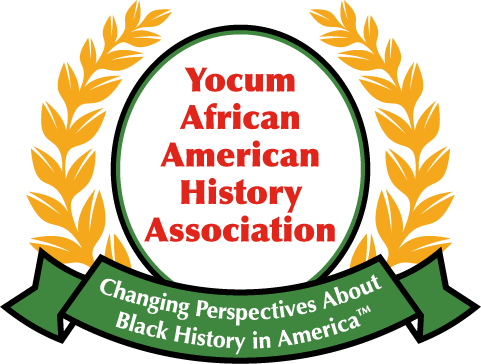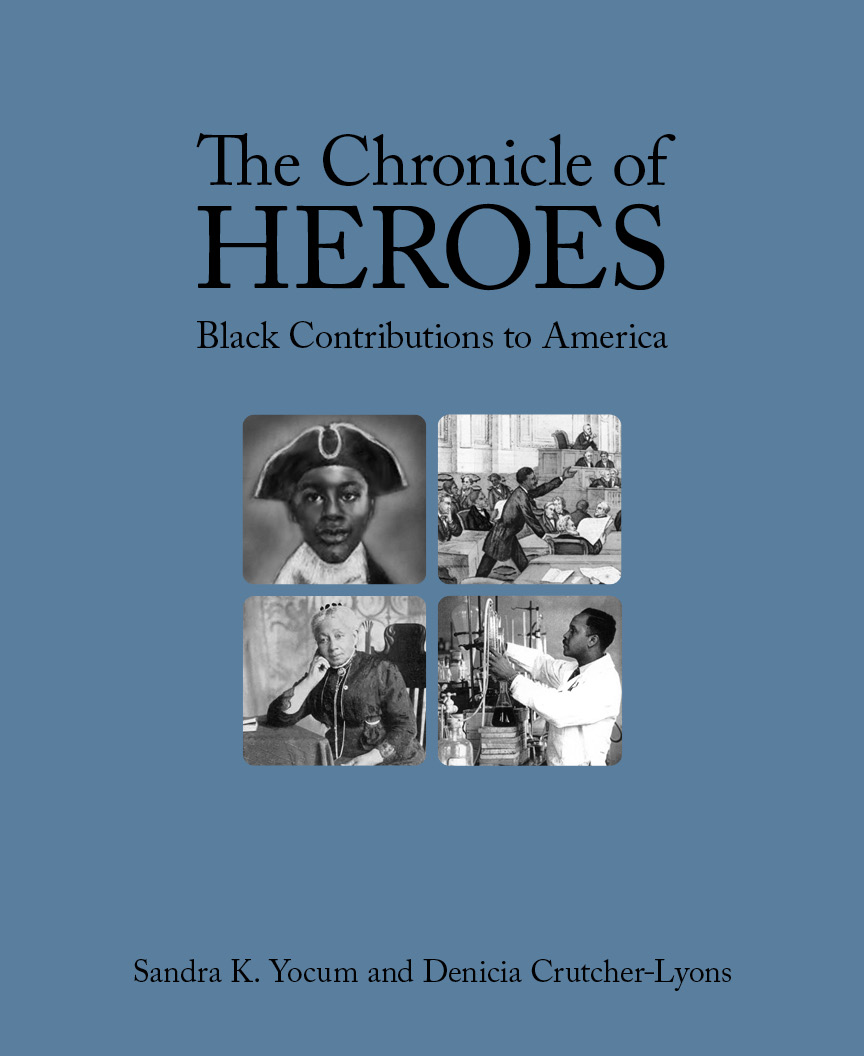Vision: We educate to bring people together in cooperation so that race will never be a limiting factor in any human interactions.
Mission: We provide a wealth of resources illustrating the ingenuity of African Americans throughout every facet of American life. We convey the impact of Black contributions with the cooperation of others, on our nation’s history.
The Yocum African American History Association (YAAHA) is a 501 (c) (3) organization dedicated to sharing educational resources about Black history and providing historical milestones that prove that Black history is American history. YAAHA provides public speaking opportunities and resources that include free lesson plans and Profile in Leadership PowerPoints that are highly effective for visual and auditory learners. We ask that when you use our copyrighted materials, you give us credit for their use.
YAAHA’s lessons celebrate Black history in America and present information about scientists, activists, inventors, doctors, aviation heroes, architects, authors, teachers, and Black patriots from all military conflicts.
Click here to view all of YAAHA’s free lesson plans.
If you are looking for an unbiased Black history website, please come and peruse our materials.
- Non-partisan
- No agenda
- No propaganda
- Just the facts
- Empowerment through education
- We challenge the status quo
YAAHA is dedicated to giving the complete story of Black history.
Who We Are
William (Bill) Altman,
Videography Development
Sheila Moten,
Ambassador
Denicia Crutcher-Lyons,
Historical Legacy Preservationist
Bettye Haskins,
Education Coordinator
Nancy Randolph,
Member-at-Large
Kenneth L. Yocum,
Secretary / Treasurer
Sandra K. Yocum,
President
A Glimpse Into Black History in America: Curated by Yocum African American History Association
1619-1719
● Indentured servants and white slaves populated Virginia Company
● Anthony Johnson one of the first blacks who owned slaves
● Britain sent convicts, women, and children to the New World
● Triangular Slave Trade began in 1660
1719-1819
● The invention of Eli Whitney’s Cotton Gin (1793)
● Fugitive Slave Law (1793)
● Louisiana Purchase (1803)
● Domestic slave trade
1819-1919
The Missouri Compromise of 1820 and 1850 with its Fugitive Slave Act would escalate the debate on slavery between the North and the South. After the Civil War and by the end of Reconstruction, around 2,000 black leaders held local, state, and federal offices. WWI would again see blacks eagerly volunteer for service.
● White and black abolitionists worked against slavery
● 180,000 blacks served in the Union Army
● 26 blacks received the Medal of Honor for Civil War service
● By end of WWI, blacks served in all combat and non-combat army units
1919 to the Present
● The Great Depression would lead to the FDR’s New Deal
● College-educated Tuskegee Airmen became the most successful “fighter squadron” in WWII
● Ruling of Brown v. Board of Education to desegregate schools
● Passage of The Civil Rights Bills of 1964, 1965, 1968
● The post-Civil Rights Movement continues with school choice and opportunity zones
YAAHA is dedicated to encouraging stories about Black history, proving that Black history is American history. We challenge the status quo about what people think they know about Black history.
Donate today! Help YAAHA by supporting the publishing cost of our new book, The Chronicle of Heroes, Black Contributions to America. Share aspirational messages and make a difference through the empowerment of education and become the hero in your community.
Donations will support writing our new book and educating all Americans about Black history from the Revolutionary War to the present.
A Glimpse Into Black History in America: Curated by Yocum African American History Association
1619-1719King James granted a charter to the Virginia Company of London in 1606 to establish a British Colony in the New World. The British used an expendable workforce of the underprivileged, but by the late 17th century, they were replaced by slaves from Africa. ● Indentured servants and white slaves populated Virginia Company ● Anthony Johnson one of the first blacks who owned slaves ● Britain sent convicts, women, and children to the New World ● Triangular Slave Trade began in 1660 |
1719-1819The Triangular Slave Trade continued until 1808 when the importation of slaves ended. Anti-British sentiment led to the Revolutionary War, where black heroes served in an integrated Continental Army. Major slave rebellions occurred throughout the Colonial Era as slavery expanded with: ● The invention of Eli Whitney’s Cotton Gin (1793) ● Fugitive Slave Law (1793) ● Louisiana Purchase (1803) ● Domestic slave trade |
1819-1919The Missouri Compromise of 1820 and 1850 with its Fugitive Slave Act would escalate the debate on slavery between the North and the South. After the Civil War and by the end of Reconstruction, around 2,000 black leaders held local, state, and federal offices. WWI would again see blacks eagerly volunteer for service. ● White and black abolitionists worked against slavery ● 180,000 blacks served in the Union Army ● 25 blacks received the Congressional Medal of Honor for Civil War service ● By end of WWI, blacks served in all combat and non-combat army units |
1919-20191919-2019 ● The Great Depression would lead to the FDR’s New Deal ● College-educated Tuskegee Airmen became the most successful “fighter squadron” in WWII ● Ruling of Brown v. Board of Education to desegregate schools ● Passage of The Civil Rights Bills of 1964, 1965, 1968 ● The post-Civil Rights Movement continues with school choice and opportunity zones |
YAAHA is dedicated to encouraging stories about Black history, proving that Black history is American history. We challenge the status quo about what people think they know about Black history.
Donate today! Help YAAHA by supporting the publishing cost of our new book, The Chronicle of Heroes, Black Contributions to America. Share aspirational messages and make a difference through the empowerment of education and become the hero in your community.
Donations will support writing our new book and educating all Americans about Black history from the Revolutionary War to the present.

